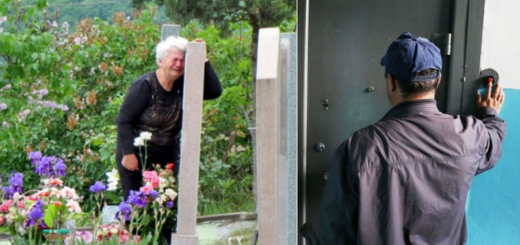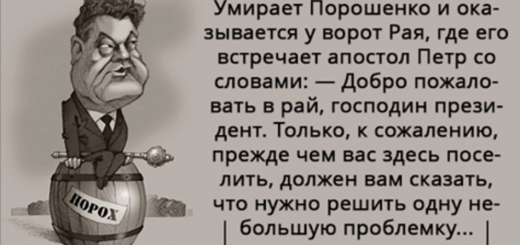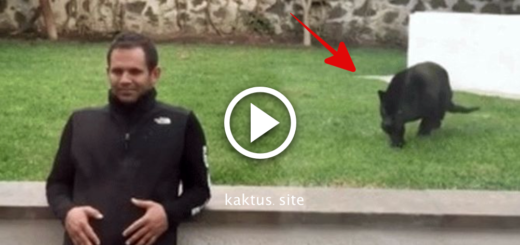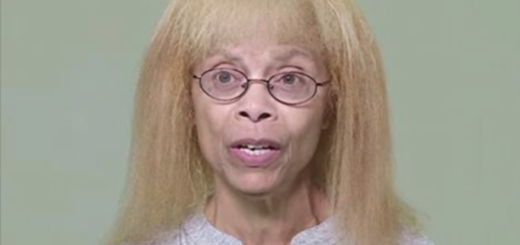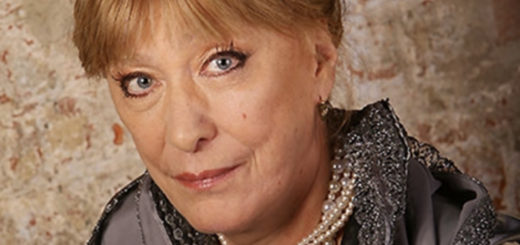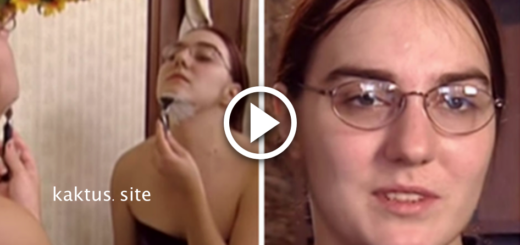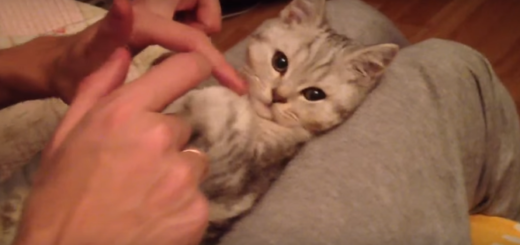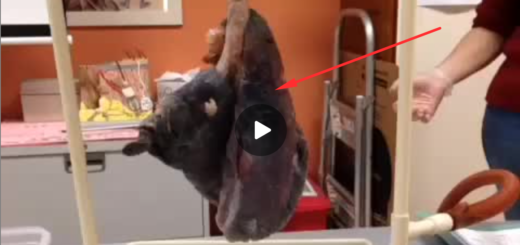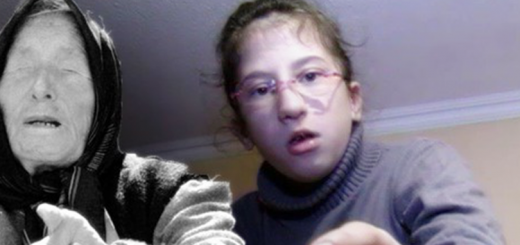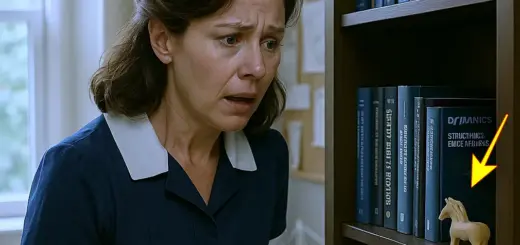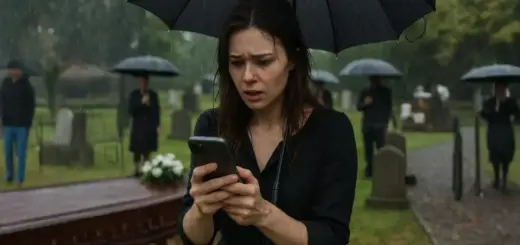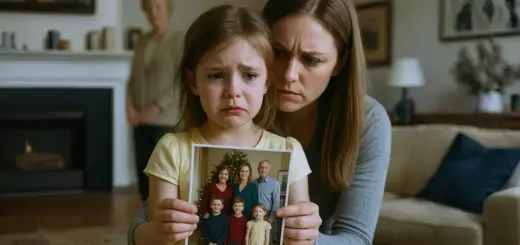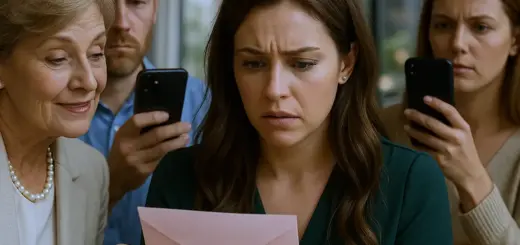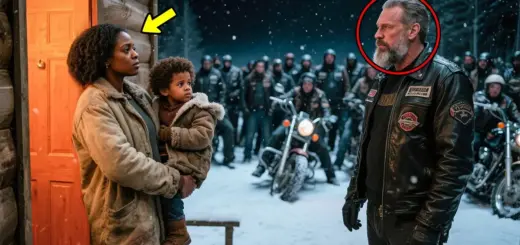The withdrawal hadn’t been depression or stress or work pressure. It had been calculated. Every step backward, every inch of distance, every excuse and avoidance—all of it leading to this moment, this announcement, the supposed diagnosis that freed him from the obligation of our marriage while painting me as the broken one.
The apartment door closed with its familiar click, leaving me alone with the ghost of the word «barren» hanging in the air like a toxic cloud. I reached for my purse, pulling out the manila envelope, spreading Dr. Young’s test results across the table where Jeffrey’s phantom medical report had been minutes ago. Perfect reproductive health. No barriers to conception. Hormone levels optimal.
I wasn’t barren, but my marriage certainly was.
The lock appeared on Jeffrey’s home office door the following Monday. Not just any lock, but a digital keypad that beeped every time he entered his code, announcing his secrets with electronic precision. I stood in the hallway with a laundry basket, watching him test it three times to make sure I couldn’t accidentally stumble into whatever he was protecting.
«Client confidentiality,» he said without me asking, his fingers still dancing over the keypad. «New regulations from corporate. You understand.»
I understood that Brennan & Associates had never required home security measures in the five years he’d worked there. I understood that his laptop had always been password-protected anyway. But I nodded, shifting the laundry basket on my hip, pretending this was normal—a husband locking his wife out of a room in their own home.
That night, a blizzard warning blanketed Chicago. Wind rattled our windows while snow piled against the building, but Jeffrey took a phone call in his car anyway. I watched from our third-floor window as he sat in the driver’s seat, engine running, exhaust pipe coughing white clouds into the frozen air. His breath fogged the windshield while he talked, gesturing with one hand like whoever was on the other end could see him.
Twenty minutes. Thirty. At forty minutes, I grabbed his heavy coat and headed downstairs, worried about carbon monoxide or frostbite or simple human decency. But when I knocked on the car window, he looked at me like I was interrupting something sacred.
He held up one finger. «Wait.» Then he turned away, continuing his conversation while I stood in the parking garage, holding his coat like an idiot. When he finally came inside, his ears were bright red, his fingers stiff from cold.
«Important call?» I asked.
«You wouldn’t understand,» he said, and somehow that hurt worse than if he’d just lied.
The physical rejection started subtly, then became theatrical. At our neighbor Mrs. Chen’s funeral—sweet Mrs. Chen who used to bring us cookies every Christmas—I reached for Jeffrey’s hand during the prayer. A normal gesture, something we’d done at dozens of services over the years. He jerked away like I’d burned him, fumbling for his phone instead, scrolling through emails while the pastor talked about love and loss and the people we leave behind.
«I thought you were reaching for my wallet,» he explained in the car afterward, which made so little sense that I didn’t even respond. Who reaches for someone’s wallet during a funeral prayer? In what universe would that be my intention?
But the company holiday party in December—that was where he truly performed his masterpiece of rejection. We arrived separately because he had a «client emergency,» which meant I walked into the Brennan & Associates annual gathering alone, scanning the crowd for my husband of five years. I found him by the bar, laughing with colleagues I’d met dozens of times—people who’d been to our home, who’d eaten my cooking, who’d congratulated us when we got married.
«Oh, this is Amy,» he said when I approached, like I was someone he’d just met, a random plus-one he’d been obligated to bring. Not «my wife, Amy.» Not «you remember Amy.» Just Amy, no context, no connection, no claim.
His co-worker Jennifer looked confused. «Your wife, Amy?»
«Amy, yes,» Jeffrey said, already turning away to order another drink.
Jennifer stared at me with sympathy that felt like pity. Others in the group exchanged glances—the kind that said they’d be discussing this later, probably in a group text Jeffrey wouldn’t be included in. I spent the rest of the party drinking wine alone in a corner, watching my husband work the room like a single man, never once looking in my direction, never once acknowledging the ring I still wore even though his lived everywhere except his finger.
The evidence planting started in January, so obvious it was insulting. I came home from grocery shopping to find our shared tablet on the kitchen counter, browser still open to an article titled, «Signs Your Wife May Be Infertile.» The search history below it read like a desperate man’s research project: «how to tell if wife can’t have babies,» «infertility symptoms women hide,» «barren wife support groups Chicago.»
He wanted me to find it. He wanted me to see these searches and start questioning myself, my body, my worth as a woman. The tablet that usually lived in his locked office had been deliberately placed where I’d see it, Google’s helpful algorithm serving up my supposed inadequacy in neat, searchable phrases.
A week later, at Barnes & Noble, I caught him photographing pages from a medical book in the pregnancy section. Not buying the book, just taking pictures of specific pages about infertility, his phone angled carefully to capture charts and statistics. When he saw me approaching, he shoved the phone in his pocket so quickly he nearly dropped it.
«Research for work,» he said, though his work involved financial portfolios, not reproductive systems. «Since when do investment accounts need pregnancy information?»
«It’s complicated,» he said, already walking away, leaving me standing between «Self-Help» and «Pregnancy Planning» like a woman lost in her own life. The cruelest part was how methodical it all was. Every search, every photographed page, every planted piece of evidence—he was building a case against me, creating a paper trail of my supposed deficiency, making sure that when he finally announced my «barrenness,» there would be a foundation of concern and research to support his claim.
My mother drove down from Wisconsin for my birthday in early February. She took one step into our apartment and I watched her face change, like she could smell the decay in our marriage through the vanilla candles I’d lit to mask it.
«It’s freezing in here,» she said, though the thermostat read 72. She meant the emotional temperature, the way Jeffrey and I moved around each other like magnets with matching poles, never touching, always repelling.
She watched him hand me a grocery store birthday card at dinner, the kind you grab from the clearance rack. «Happy Birthday» in glittery letters, his name signed at the bottom. No «love,» no message, no acknowledgment of five years together. Mom cornered me in the kitchen while Jeffrey took another mysterious phone call.
«Honey,» she whispered, drying dishes that were already dry. «What’s happening here?»
«We’re trying for a baby,» I said, my standard excuse for everything now. «It’s stressful.»
She looked at me the way she had when I was seven and insisted the dog ate my homework, even though we didn’t have a dog. «Amy, this isn’t stress. This is something else.»
«Mom, please.»
«He didn’t even write ‘love’ on your birthday card.»
I wanted to tell her about the locked office, the car phone calls in blizzards, the way he’d stopped saying my name with any tenderness. Instead, I smiled—that broken smile I’d perfected over three months of pretending everything was fine. «We’re working through some things.»
She left the next morning, hugging me so tight I thought she might never let go. «You know, you can always come home,» she whispered into my hair. «No questions asked.»
But I wasn’t ready to go home. I was still believing Jeffrey’s performance, still thinking this was fixable, still hoping the man I’d married was somewhere inside this stranger who locked doors and planted evidence and treated me like a disease he was documenting for medical journals.
Two weeks after Mom’s visit, Jeffrey called in sick to work. The phone conversation with his supervisor was brief, professional, his voice carrying the weight of imaginary illness. He hung up and looked at me across our bedroom, and I knew with the certainty that comes from living with someone’s patterns that whatever came next had been planned down to the minute.
He moved through our apartment with unusual purpose, making coffee for both of us. Not the single mug he’d been pouring for months, but two cups, measuring the grounds precisely, adding my cream and sugar without asking if I still took it the same way. The coffee maker gurgled while he adjusted the blinds in the kitchen, tilting them until the morning light fell across our table like a spotlight on a stage.
«Sit,» he said, pulling out my chair, the first time he’d done that in months. The gesture felt rehearsed, like he’d practiced being a gentleman one last time before dismantling everything gentle between us. I sat watching him arrange our coffee mugs just so, positioning his folder at the perfect angle beside his cup. Everything was choreographed.
Even the way he settled into his chair seemed calculated, his posture straighter than usual, his hands folded like a news anchor about to deliver tragic headlines. «We need to have an honest conversation,» he began, and I noticed he was looking just past me, focusing on a spot over my left shoulder like actors do when they can’t quite meet their scene partner’s eyes.
He reached for the folder—brown, unmarked, thick with what looked like official documents—and slid it across the table with the careful precision of someone handling evidence. The folder stopped exactly halfway between us, a border neither of us would cross.
«I’ve been doing research,» he said, his voice taking on a tone I’d never heard before—clinical, detached, like he was presenting quarterly earnings to strangers. «About our situation. About why we haven’t been able to conceive.»
My hands wrapped around the coffee mug for warmth, though the chill I felt had nothing to do with the temperature. Through the steam rising from my cup, I watched Jeffrey’s face cycle through expressions he must have practiced: concern, sympathy, resignation. None of them reached his eyes.
«Some women,» he began, then paused, clearing his throat like the words were difficult. But I could tell they weren’t. They flowed too smoothly, too prepared. «Some women just can’t have children, Amy. It’s not anyone’s fault. It’s just biology.»
He opened the folder, revealing what looked like medical reports, lab results, charts with numbers I couldn’t quite read from my angle. His finger traced along one page, stopping at highlighted sections, though he never actually pushed the documents close enough for me to examine them properly.
«The tests are conclusive,» he continued, that practiced monotone never wavering. «Your reproductive system… it’s just not capable. The doctors call it primary infertility. Irreversible.»
The doctors. Which doctors? When had I seen any doctors with him? But I kept my mouth shut, watching this performance unfold, feeling like an audience member at my own funeral as Jeffrey eulogized our marriage with fabricated medical terminology.
The relief on his face was obscene. His shoulders relaxed, his breathing deepened, like he’d been holding his breath for months and could finally exhale. He’d been preparing for this moment, I realized. Not dreading it but anticipating it, eager to deliver his verdict and be done with the charade of our marriage.
«We need to explore other options,» he said, the words flowing faster now, more confident. «For having a family, I mean. I’ve been thinking about this a lot, Amy. I need children. I need to leave something behind, a legacy, you understand.»
A legacy. Like he was a king worried about succession instead of a financial analyst who spent his days moving numbers around spreadsheets. But I remained silent, my fingers tracing the handle of my coffee mug while my mind raced to the filing cabinet in our bedroom, to the folder marked «Medical Records,» where my actual test results lived. The ones from Dr. Patricia Young showing everything functioning perfectly, hormone levels optimal, no barriers whatsoever to conception.
«I know this is hard to hear,» Jeffrey continued, misreading my silence as devastation rather than calculation. «But we have to face facts. You’re…» He paused, gathering himself for the final blow. «You’re broken, Amy. And I can’t fix you.»
The words hung in the air between us, and that’s when my grandmother’s coffee mug—the delicate china one she’d given me at our wedding, painted with tiny forget-me-nots and etched in gold—slipped from my numb fingers. It fell in what seemed like slow motion, turning once in the air before meeting our hardwood floor with a sound that was both musical and final.
Coffee spread across the floor in a brown starburst, reaching toward Jeffrey’s feet like an accusation. The mug had broken into five distinct pieces: the handle intact but separated, the bottom cracked clean off, the sides scattered like petals from a dead flower. I knelt to gather the pieces, my hands shaking not with grief but with a rage I couldn’t yet express.









